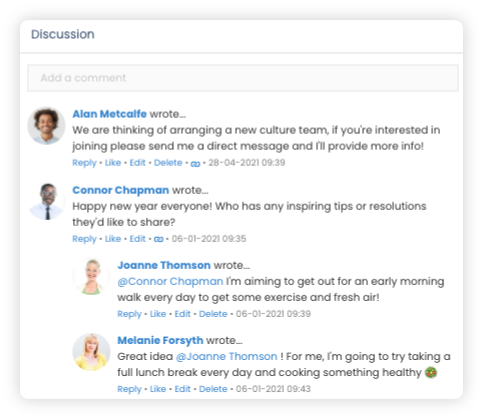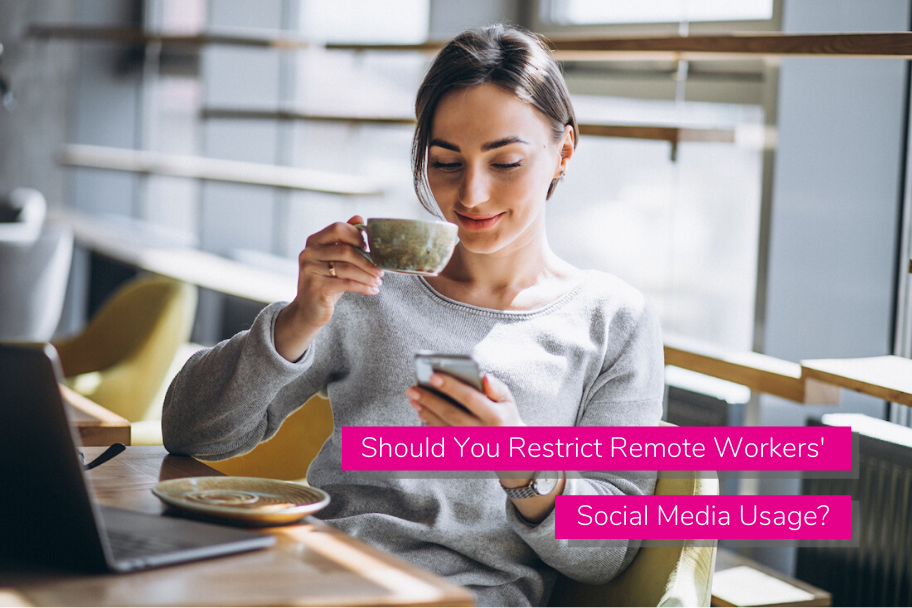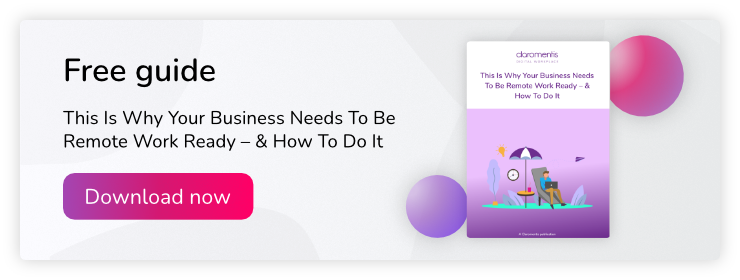Once upon a time, corporate policies on using social media during office hours were strict and rigorously imposed. Companies were constantly on the lookout for the best ways to stop staff from eating into productivity by surfing online or messaging for personal use.
Then came the boom in remote working and the dawn of the digital workforce!
Imposing rules on the use of technology and company time for non-work related activities has become a great deal harder.
The issues involved have also been complicated by the sense of isolation that can occur in fragmented, remote teams. If you work alone, no matter how ambitious and engaged you are, the temptation to get a social ‘fix’ during office hours can be overwhelming. Or, to take a short break from intense work tasks, to browse the internet for personal interest.
Should online social interaction be prohibited?
The latter point raises an interesting question. Should modern businesses even bother to impose rules about the use of devices for personal activities?
Checking social networks for the latest news from friends and to exchange messages, is simply a replacement for chatting around the office coffee machine. This online interaction can actually help remote workers feel less isolated.
Some companies also develop enterprise social networks within their intranet. These can be configured to meet specific communication and collaboration goals or to engender free and unregulated chatting among colleagues. This can provide a fertile platform for relationship building between project teams, as well as replacing the office chit-chat that remote workers miss out on.

Corporate social media boosts communication and connects remote workers to their team mates
There is also a belief that building a nurturing relationship with your workforce – and supporting a strong culture of trust and empathy – means leaving staff to self-regulate their time. If they reach their goals and fulfil their responsibilities, does it really matter if they use their time and devices to catch up with friends or check the sports results?
Blurred lines between work and pleasure
The fact that social media is such a commonplace communications tool for business purposes also clouds this debate.
Companies often rely on social media platforms to keep their target audiences informed and engaged – including their staff. Employees are often encouraged to interact with announcements and photos that are posted on the company’s Facebook or Twitter, so imposing limits and penalties for being distracted by social media seems a tad hypocritical.
You need the help of your staff to get the social media balance right. Gathering their suggestions can help you to shape a policy that is realistic and built for modern working.
Protecting corporate reputation
Protecting your business’s reputation is something that applies to all social media activity – both during working hours and in free time. It needs to be clear to employees that what they post on private accounts can still come back to bite them!
Companies should spell out to their teams any activities that they believe could undermine the organisation’s digital reputation. Especially due to the viral nature of ‘bad publicity’ and the way a misstep online can haunt an organisation for many, many years.

Don’t risk bad publicity turning your corporate reputation to shreds
This could include, for example, posting images showing work premises or your products, as well as publicly accessible comments about colleagues, suppliers, or customers. Clarify exactly which online behaviour is frowned upon, and which activities could result in dismissal.
Controlling corporate messages
If you have a dedicated PR or marketing team who manage your external communications, make sure you inform your staff that sharing information about the company and its activities online should be avoided, if not prohibited altogether. This includes commenting and posting on behalf of your business, or sharing news about products and services that may not be ready to be shared.
You could also consider asking members of staff to add a disclaimer to their personal social media accounts if they mention your company in any form (such as on LinkedIn). This wording shows that any posts are purely a personal opinion.
Don’t just tuck policies away on your intranet
Beyond measures to protect your corporate reputation and brand identity, you should update and modernise your guidance on using social media in digital workplaces. A simple request that your staff limit personal use of the internet during working hours, could be all that’s needed to achieve the balance you’re looking for.
Regularly remind your teams of your social media and online policies too. Tucking them away in your document storage area will likely mean that they get forgotten about. Instead, intranet software can make policies like these a ‘living’ reality of working digitally, and gives your staff the chance to revisit the info whenever they need to.





